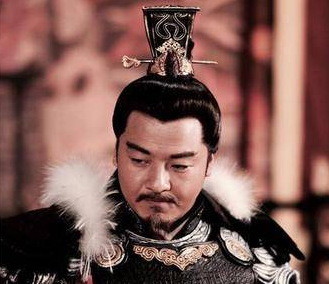In the late Qin Dynasty, the people suffered great hardships, and the outbreak of the Dazexiang Rebellion led by Chen Sheng and Wu Guang marked the beginning of the first peasant rebellion in Chinese history. Although the rebellion ultimately failed, it had a profound impact on Chinese history. This article will analyze the process of the Chen Sheng and Wu Guang Rebellion.

I. Background of the Rebellion
In the late Qin Dynasty, after Emperor Qin Shi Huang united the six kingdoms, he implemented harsh laws and cruel rule, leading to the depletion of people's livelihood and the intensification of social conflicts. At the same time, the Qin Dynasty's corvée system placed a heavy burden on farmers, such as building the Great Wall, tombs, and other projects. Against this backdrop, Chen Sheng and Wu Guang were recruited to go to Yuyang (today's Beijing) for military service, but they were trapped in Dazexiang due to rain and could not arrive at their destination on time. According to Qin law, those who failed to arrive on time would be executed. Therefore, Chen Sheng and Wu Guang decided to launch a rebellion against the Qin Dynasty.
II. Process of the Rebellion
Chen Sheng and Wu Guang used the slogan "Are there really kings and generals born of a different breed?" to inspire the soldiers' fighting spirit and quickly organized a large rebellion army. They captured Dazexiang and then many other counties, creating a powerful momentum. Chen Sheng proclaimed himself as the "King of Zhang-Chu" and established a regime that opposed the Qin Dynasty. However, during the rebellion, Chen Sheng became too autocratic, leading to increasing internal conflicts. At the same time, the Qin Dynasty dispatched Zhang Han to lead a large army to suppress the rebellion, and Chen Sheng's army was defeated in battle after battle.
III. Reasons for the Failure of the Rebellion
The main reasons for the failure of the Chen Sheng and Wu Guang Rebellion are as follows: Firstly, the rebellion army lacked unified leadership and strategic planning, and the various rebel forces operated independently without forming a combined force. Secondly, Chen Sheng became too autocratic, leading to escalating internal conflicts and some generals losing loyalty. Finally, although the Qin Dynasty's rule was corrupt, it still possessed a powerful military force that the rebellion army could not resist.
IV. Conclusion
The Chen Sheng and Wu Guang Rebellion was the first peasant rebellion in Chinese history and has significant historical significance. Although it ultimately failed, it revealed the corruption of the Qin Dynasty's rule and the people's dissatisfaction, providing a reference for later heroes such as Liu Bang and Xiang Yu. This rebellion also left a profound imprint on the development of Chinese history, becoming a model for subsequent peasant rebellions.
Disclaimer: The above content is sourced from the internet and the copyright belongs to the original author. If there is any infringement of your original copyright, please inform us and we will delete the relevant content as soon as possible.



























